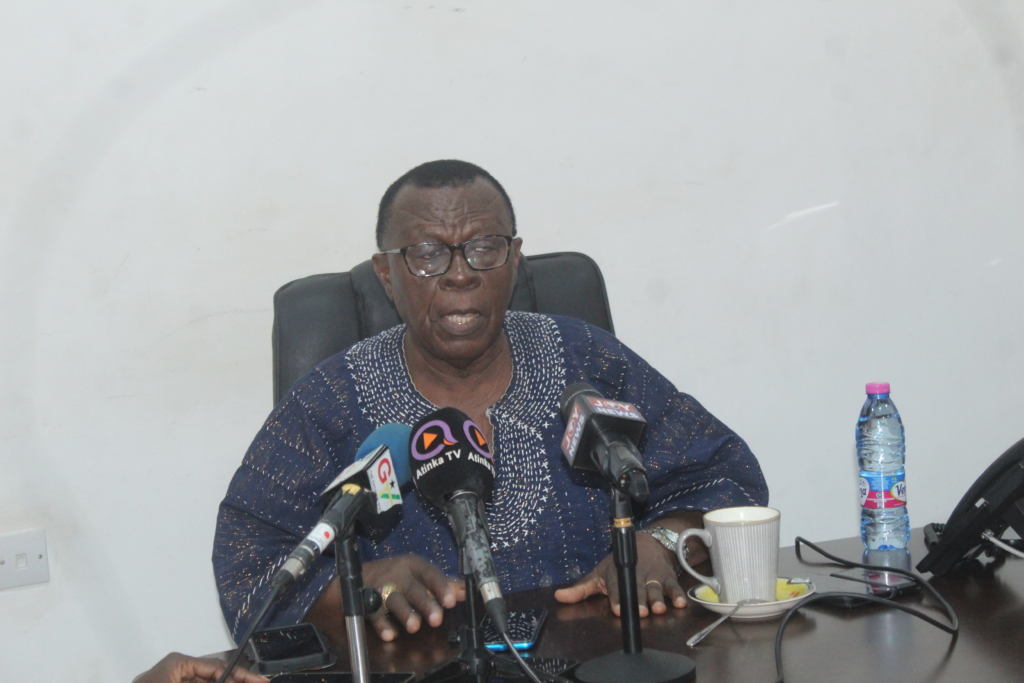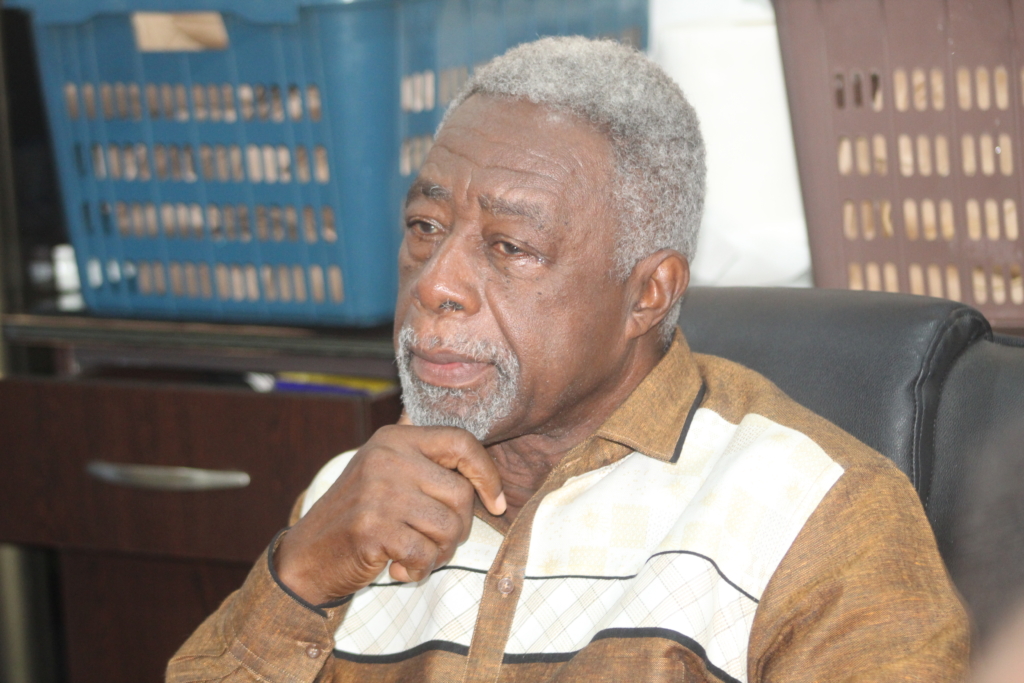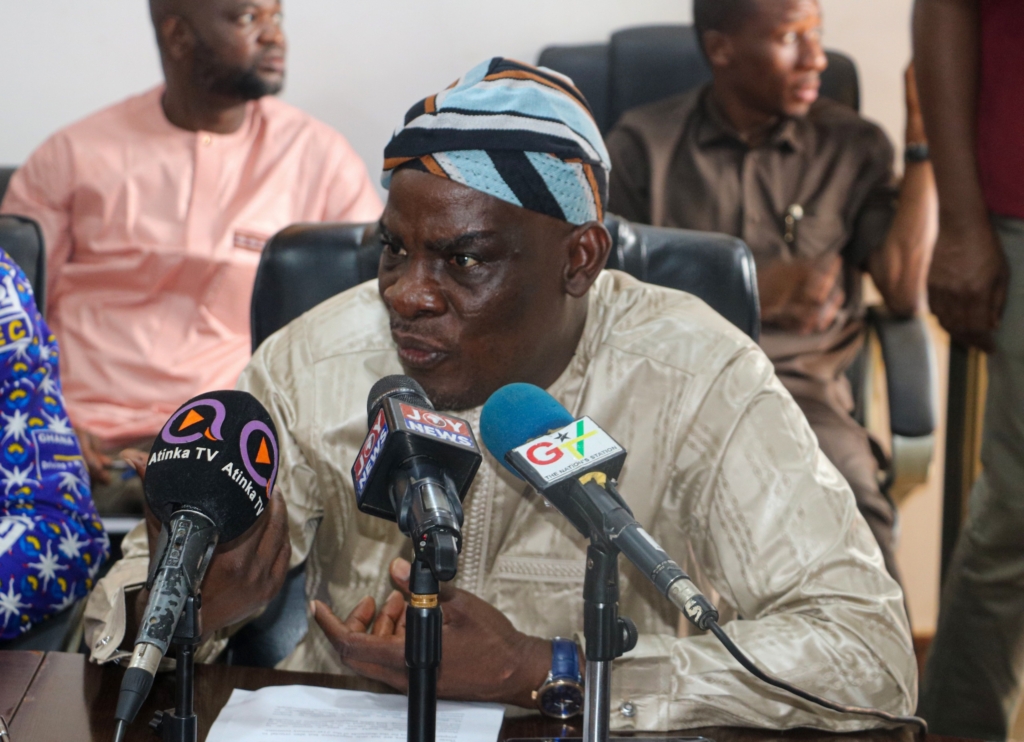The government’s proposal to mandate a 10-year charter ultimatum for private universities could wipe out many institutions, Wisconsin International University College Chancellor Dr. Paul Kofi Fynn has cautioned.
He delivered the stern warning on Friday, July 18, during a courtesy visit to the university by the Minister of Education, Haruna Iddrisu, highlighting the huge problems likely to be triggered by the new proposal.
The government’s policy stipulates that all private universities must obtain a Presidential Charter within 10 years of their establishment or face closure.
A Presidential Charter grants an institution the autonomy to award its own degrees, rather than operating under the mentorship of an established public university.

Wisconsin International University College Chancellor Dr. Paul Kofi Fynn
Dr. Fynn argued that while charter status offers independence, the current timing and mandatory nature of the policy are deeply flawed.
“Charter is just a promotion, and accreditation is something that has to be done every time, every day, and they have to check the curricula and all the programmes that the institution is running. So, there are two different issues,” he explained, distinguishing between ongoing quality assurance (accreditation) and a one-time grant of autonomy (charter).
He pointed to international practices, noting, “When you go overseas, you have colleges, you have institutions, you have institutes, you have universities; it’s there; there’s no force. It is only in this country that they are pushing for a charter, which many don’t understand. Charter is good because it makes you independent, but the timing in this country is not right.”
Looming crisis
Dr. Fynn expressed concern that forcing charters now would “create serious problems in this country”.
He elaborated on the unpreparedness of many institutions.
“Number one, if you see and check the programmes that we have in this country, infrastructure, books, professors, students, and even the idea of becoming independent.”
He used a poignant analogy to illustrate his point.
“It’s just like having a baby, and after three years, you say the baby should walk, and the baby cannot walk. So it is my point, my view that as far as Wisconsin is concerned, we don’t accept this idea of charter. We are hoping that the thing [charter] can be made optional.”
The Chancellor stressed that mandatory chartering places an undue burden on institutions that are not ready.
“If you are ready, go for it. If you are not ready, you don’t go for it, but it should not be forced on the institutions. Once it is enforced on the institutions, then it becomes a problem, especially if the school is not ready.”
Student perceptions and financial strain
A major concern raised by Dr. Fynn is the perception among Ghanaian students and parents regarding degrees from chartered private universities.
He stated, “Many people now, especially the students and parents, would want their children to get their degrees from other universities like Legon, Cape Coast, or Kumasi, or these public universities, and they will not accept degrees from most private universities. I would say almost all the private universities, because if they go abroad, who knows an Akwasi Nyamekye University in America or the UK?”
This suggests a fundamental lack of trust in the perceived value of degrees from private institutions, lacking the long-standing recognition of public universities.
The financial implications are also dire.
Dr. Fynn highlighted that private universities largely depend on student fees, unlike public institutions that receive substantial government subventions.
“Most of our schools, we are not getting money from the government or from anywhere. We depend on the students’ fees to run the schools. Now, let me tell you, if you don’t have them, how are you going to run the school? You have to pay your teachers; you have to pay for electricity. You have to run the whole place. And it is very expensive to run a university.”

He cited Wisconsin’s own experience with loans: “For example, we took money from ADB. Now, you have this big loan to pay, and you are reducing your members and the students. How are you going to pay the loan? When you force me to charter today, and all my students leave because they don’t want a certificate from Wisconsin, where am I going to get the money to pay? It’s going to be difficult.”
A call for suspension
Ghana currently has over 100 private universities, a figure that has grown significantly over the last two decades, contributing to access to higher education in a country where public universities cannot absorb all qualified applicants.
However, only a fraction of these institutions have attained a charter.
The National Accreditation Board (NAB), now Ghana Tertiary Education Commission (GTEC), oversees the accreditation and supervision of these institutions.
Dr. Fynn revealed that “almost 90% of them don’t accept it, but it’s being forced on them. Those who went – about 20 universities that have chartered now – they were forced.”
He alleged that these 20 institutions were chartered out of fear of closure and are now regretting it due to declining student numbers.
“Now they are crying because the students are not going there. They are reducing members, especially those who are running first degree and second degrees.”
The Private Universities Association of Ghana (PUAG), which Wisconsin University is a part of, has been actively engaging the government on this issue.
“So the private universities formed an association, which we call the Private University Association, and we are promoting and telling the government and telling everybody that they should suspend this idea of charter now, because if they do it now, maybe they want to collapse all the private universities in Ghana. Because if they do it, that will be the end of the private universities because of those who have already chartered.”
Dr. Fynn concluded his passionate plea by questioning the government’s rationale.
“I asked them [the government] if they have checked with those who have chartered? How well are they doing? If they are not doing well, why do you force me to go and charter? So that my school will come down, or because you want to bring down my school? And this is a problem that is going on now. We have been having a series of meetings with the government, telling the government not to force this on us. We are not in a socialist or communist country where things are imposed on members. We are in a democratic country. So the government should give us the freedom when we are ready.

Wisconsin International University College Board Chair Justice I.D. Duose (Rtd)
In support of the appeal was Wisconsin International University College Board Chair Justice I.D. Duose (Rtd).
The retired Court of Appeal judge was emphatic about the need to hasten slowly.
“We believe that charter is a promotion, and we don’t want a premature promotion. We want to be able to bring ourselves to a level where we think that we need to be independent and not be on our own and that is a major conflict we have with the regulators on when the charter should happen.
“Independence – people fight for it. But sometimes, when you get independent prematurely, you have problems. That’s a major concern”.
Education Minister’s response
On his part, Minister of Education Haruna Iddrisu noted that the government could give the private universities a limited extension.
“I don’t interfere with the work of the regulator. But my Lord, recognising the pivotal role institutions such as yours play in the provision of higher education, I’ve requested that we extend the charter period. And my Lord, I’ll borrow the words from you, not to perpetuity, but at least for the next decade. Those of you who are not ready, we would extend the charter period at least for not later than the next 10 years.”

Education Minister Haruna Iddrisu
He added, “That’s enough room for you to build faculty, enough room for you to improve your infrastructure, both academic and residential, learning, and other resources. So that, the government is happy to do in order that we can secure and protect your investment. This is a major risk we took, but this is not an ordinary risk.”
The minister further lauded Wisconsin for a significant achievement within a few years of operation.
“You’ve done wonderful things. I mean, Ghana can boast of expanded access to higher education, provided not limited to public institutions, but to private institutions.
“So I want to thank you. You are contributing immensely to the development of Ghana’s human capital. I had a tour of the institution. I’m impressed, particularly with the AI laboratory. But my joy was at the anatomy laboratory where the young lady took us through what happens there,” he concluded.
He pledged the government’s support to Wisconsin and other private universities to boost the education sector.
DISCLAIMER: The Views, Comments, Opinions, Contributions and Statements made by Readers and Contributors on this platform do not necessarily represent the views or policy of Multimedia Group Limited.
DISCLAIMER: The Views, Comments, Opinions, Contributions and Statements made by Readers and Contributors on this platform do not necessarily represent the views or policy of Multimedia Group Limited.


